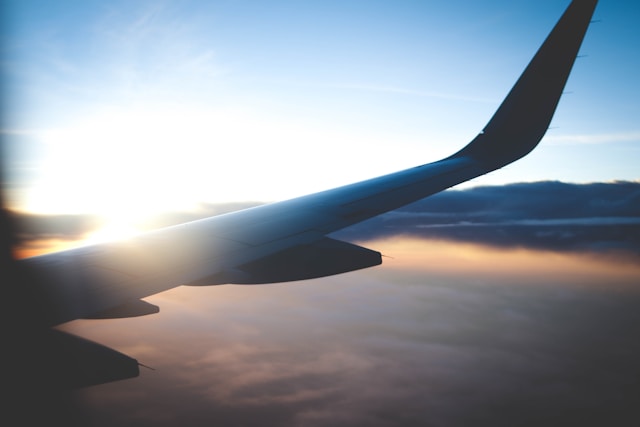1. Myth: Airlines Charge More for One-Way Flights Just to Be Greedy
Many travelers believe that airlines price one-way flights higher purely out of greed, but this oversimplification ignores the complex reality of airline economics. In truth, airline pricing is governed by dynamic algorithms designed to maximize revenue based on passenger demand, route popularity, competition, and seasonal factors. While airlines aim to be profitable, the higher cost of one-way flights often reflects market behavior and risk mitigation strategies more than sheer opportunism.
2. Myth: Round-Trip Flights Are Always Cheaper Because You Get a Discount
Although round-trip flights often appear to offer a “discount,” they are actually part of a pricing strategy that benefits the airline by increasing customer loyalty and predictability. By encouraging travelers to purchase a return ticket, airlines reduce the likelihood of passengers choosing a competitor for the return leg and can better forecast seat occupancy. The lower round-trip price is less a reward and more a tactic to secure repeat business and reduce market volatility.
3. Myth: Budget Airlines Always Have Cheaper One-Way Flights
It’s a common assumption that low-cost carriers like Southwest or Ryanair always offer the cheapest one-way fares, but this isn’t universally true. While budget airlines often lead in competitive pricing, many full-service and legacy carriers now offer comparable one-way fares on high-traffic routes or during off-peak seasons. Additionally, when you factor in baggage fees, seat selection, and taxes, some budget options may end up being just as costly — or even more so — than traditional airlines.
4. Myth: International One-Way Tickets Are Just as Affordable as Domestic
One of the most persistent myths is that international one-way tickets are priced similarly to domestic one-ways. In reality, many international routes impose stricter immigration regulations that require proof of onward travel, and one-way fares are often associated with higher-risk travelers or last-minute bookings. These factors lead airlines to price international one-way tickets higher, as they are less frequently purchased and more logistically complex to manage.
5. Myth: Booking a One-Way Is Always More Expensive
While one-way flights can be costly on certain routes, this is not a universal rule. In many domestic markets or with certain low-cost carriers, one-way tickets are competitively priced and even encouraged for flexibility. Travelers booking well in advance, during low seasons, or with newer carriers may find excellent deals on one-way fares. In some cases, booking two separate one-ways with different airlines can be cheaper than a traditional round-trip.
6. Myth: It’s Cheaper to Buy a Round-Trip and Throw Away the Return Ticket
Throwaway ticketing, or purchasing a round-trip ticket just to use the outbound flight, can occasionally save money — but it comes with serious risks. Most airlines consider this a violation of their fare rules, and if detected, they may cancel your ticket, void your miles, or blacklist you from future bookings. It’s also a non-starter if you plan to check luggage, as it will be routed to the final destination. The risk of penalties often outweighs the potential savings.
7. Myth: Airline Pricing Makes No Sense — It’s Just Random
Airline pricing may seem chaotic, but it is anything but random. Airlines use highly advanced revenue management systems that assess millions of variables in real-time — including time of day, booking history, competitor activity, fare class availability, and historical data — to determine ticket prices. One-way pricing is often influenced by assumptions about the traveler’s urgency or flexibility, particularly for business travelers who tend to pay more for convenience.
8. Myth: All Airlines Use the Same Pricing Strategy
There is a significant difference between the pricing models of full-service and low-cost airlines. Full-service carriers typically segment travelers based on their purchasing behavior, offering perks like flexibility and loyalty points for higher fares. In contrast, low-cost carriers rely on volume and price transparency, often offering consistent pricing for one-way and round-trip fares. Knowing which type of airline you’re dealing with can help you choose the most cost-effective option.
9. Myth: Frequent Flyers Always Get Cheaper One-Way Options
Having elite status or frequent flyer points does not guarantee better prices on one-way tickets. In fact, elite travelers often pay more for flexible or refundable tickets, especially when booking at the last minute. While miles and status perks can reduce ancillary fees or unlock upgrades, the base fare on one-way flights isn’t necessarily lower for loyal customers. In many cases, casual or price-sensitive flyers may find better one-way deals by shopping strategically.
10. Myth: There’s Nothing You Can Do About One-Way Pricing
Perhaps the most damaging myth is that travelers are powerless to beat high one-way fares. In reality, savvy travelers can employ a variety of tactics to reduce costs: using fare comparison tools, checking for alternate airports, booking two separate one-way tickets with different airlines, using frequent flyer miles, or traveling midweek. Knowledge and flexibility are your biggest assets when trying to outmaneuver airline pricing models.
Conclusion
While one-way flight pricing can be puzzling, many of the myths surrounding it don’t hold up under scrutiny. Pricing strategies are driven by data, market behavior, and strategic planning — not randomness or pure greed. Once you understand how airline pricing works, you can make smarter travel decisions and potentially avoid paying more than necessary. Whether you’re booking for business, relocation, or leisure, recognizing the truth behind these myths can save you both money and frustration.
FAQs
1. Why is a one-way flight sometimes more expensive than a round trip?
Because airlines use round-trip pricing to retain customers and predict return travel, they often subsidize round-trip fares. One-way tickets may be priced higher to offset the unpredictability or last-minute nature of the booking.
2. Are there airlines that offer affordable one-way flights?
Yes, low-cost carriers such as Southwest, Ryanair, JetBlue, and AirAsia often price one-way flights fairly. However, always compare final costs after fees and extras.
3. Is it legal to book a round-trip flight and skip the return?
Technically yes, but it violates most airlines’ terms of service. If caught, you could face penalties like ticket cancellation or loss of travel privileges.
4. How can I save money on one-way flights?
Use flight comparison sites, consider alternate airports, check low-cost carriers, book early, or use frequent flyer miles. Sometimes booking two one-ways separately can also help.
5. Do airlines price one-way tickets differently based on destination?
Yes, international one-way flights often cost more than domestic ones due to visa rules, immigration requirements, and fewer travelers choosing that option.







